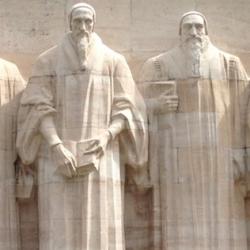Margo Todd’s The Culture of Protestantism in Early Modern Scotland is an extraordinarily rich study. One brief note will serve to illustrate.
“A visitor to an early seventeenth-century Scottish church had no difficulty seeing the social structure of the community in the arrangement of seats.” The principle was simple: The best folk got the best, most prominent seats. At Kirkwall, the elders insisted that the church retain socially segregated seating to avoid “great incivility and undecentness of the baser sort among the people . . . . who being sat down in the chiefest seats of the kirk would not rise up to give place to their betters and superiors” (320-1).
Unsurprisingly, the prohibition only served to stoke rivalry: “The proprietary value of seats as status markers made them very often a cause of quarrels and even violence in the kirk.” At Perth, elders “were so disgusted at a ‘difference . . . fallen out between some honest women of the town for particular and proper seats in the kirk’ that they ordered all seats ‘appertaining to women to be demolished and taken out of the kirk for avoiding of such slanderous strifes’” (323).
Not everyone got the memo. In 1634, “they had to deal with Elspeth Kettle and Barbara Stewart after Kettle ‘raised Barbara off her stool, violently pulling it from her and striking her on the side of the head with her knife’ and Stewart responded by jabbing Kettle ‘with a needly in the ears to the effusion of her blood.’” Lawrence Dischington of Anstruther Wester decided on direct action. He was “so distraught at not being thought worthy of a place that he ‘violently broke the principal seat of the kirk and gave unto sundry of the elders man injurious languages’” (323).














